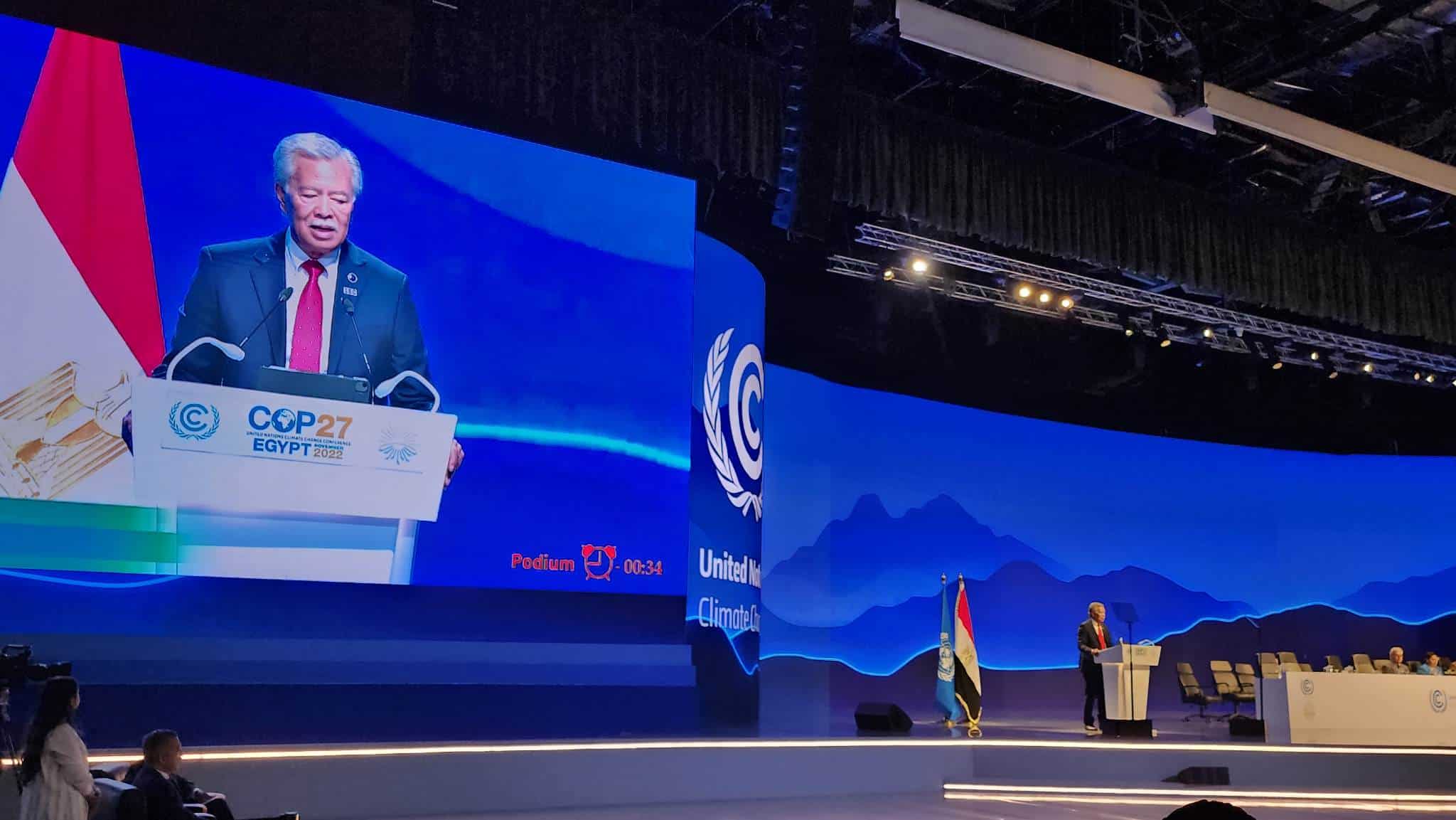After days of intense negotiations in Sharm el-Sheikh, countries at the latest UN Climate Change Conference, COP27, reached agreement on an outcome that established a funding mechanism to compensate vulnerable nations for ‘loss and damage’ from climate-induced disasters.
“This COP has taken an important step towards justice. I welcome the decision to establish a loss and damage fund and to operationalise it in the coming period,” UN Secretary-General António Guterres said in a video message issued from the conference venue in Egypt, underscoring that the voices of those on frontlines of the climate crisis must be heard.
The UN chief was referring to what ended up becoming the thorniest issue at this COP, shorthand for the annual Conference of Parties to the UN Framework Convention on Climate Change (UNFCCC).
Developing countries made strong and repeated appeals for the establishment of a loss and damage fund, to compensate the countries that are the most vulnerable to climate disasters, yet who have contributed little to the climate crisis.
“Clearly this will not be enough, but it is a much-needed political signal to rebuild broken trust,” he underscored, stressing that the UN system will support the effort every step of the way.
After missing their Friday night deadline, negotiators were finally able to reach conclusions on the most difficult items of the agenda, including a loss and damage facility – with a commitment to set up a financial support structure for the most vulnerable by the next COP in 2023 – as well as the post-2025 finance goal, and the so-called mitigation work programme, that would reduce emissions faster, catalyse impactful action, and secure assurances from key countries that they will take immediate action to raise ambition and keep us on the path towards 1.5°C.
The UN chief said that while a fund for loss and damage is essential, it’s not an answer if the climate crisis washes a small island State off the map – or turns an entire African country into a desert.
Pacific response on loss and damage fund
Meanwhile, Pacific advisor at Greenpeace Australia Pacific, Shiva Gounden, says the establishment of a loss and damage finance facility at COP27 marks a “new dawn for climate justice”.
“Pacific Island nations are on the frontlines of the climate crisis and at the forefront of the fight for climate justice. We’ve worked for a generation for this moment. More than thirty years after the idea of loss and damage was first introduced by Vanuatu, it is Pacific Island nations and the developing world that has made COP27 a real moment for action on climate justice.
“Moving forward into discussion of the details of the fund, we need to ensure that those most responsible for the climate crisis make the biggest contribution. For countries like Australia that spent a staggering $11.6 billion (US$7.3 billion) on fossil fuel subsidies in 2021-2022, this means paying up, not paying off polluting industries.
“The Australian government must take stock of this moment and truly champion our journey for climate justice through words and action, and through addressing the causes and symptoms of the climate crisis.”
Ulaiasi Tuikoro, Fijian climate activist and representative of the Pacific Youth Council, said the deal offered the Pacific Islands a glimmer of hope, but the fight for climate justice is long from over.
“It was devastating for us Pacific Islanders to go into rooms and negotiate. We don’t negotiate numbers and clauses, we negotiate our lives, cultures, communities, people, and our very existence.
“The commitment to a loss and damage finance facility at COP27 is a result of solidarity and a step forward for climate justice, but in order to give the Pacific a fighting chance we must tackle the causes and the consequences of the climate crisis simultaneously. The world must move on agreeing to phase out all fossil fuels and throw every effort behind preserving our 1.5 degree lifeline.”
Taren Chilia, 20-year climate activist from Vanuatu, urged world leaders to learn from the breakthrough on loss and damage at COP27 and honour their commitments.
“I am proud to be from Vanuatu, where the idea of loss and damage first came from a whole decade before I was born. This is an idea that was born in the Pacific and driven forward at COP27 by Pacific Islanders fighting for their lives, livelihoods, and ways of living.
“I laid the first brick of my school together with my father after Cyclone Pam devastated my village in Vanuatu. These coming years will determine if our Pacific homes and cultures will continue or if our most vulnerable will see their homes sink under the seas. Pacific peoples taught the world a lesson at COP27 – we may be drowning, but we are fighting. And we will continue to fight until climate justice is truly served,” said Chilia.
Commonwealth Secretary-General, Patricia Scotland, also welcomed the commitment, saying: “The Commonwealth stance on loss and damage has been unequivocal. When Commonwealth Heads of Government Meeting met in Kigali, Rwanda earlier this year in June, they were united in their call for scaled up action and financing to address loss and damage resulting from climate change.
“This follows on a long history of global advocacy on climate change, ever since Commonwealth leaders issued the Langkawi Declaration on the Environment in 1989, which underscored the need for worldwide collaboration on climate change to avert permanent and irreversible damage to our environment and way of life.
COP27 convened over 35,000 people, including government representatives, observers and civil society.
